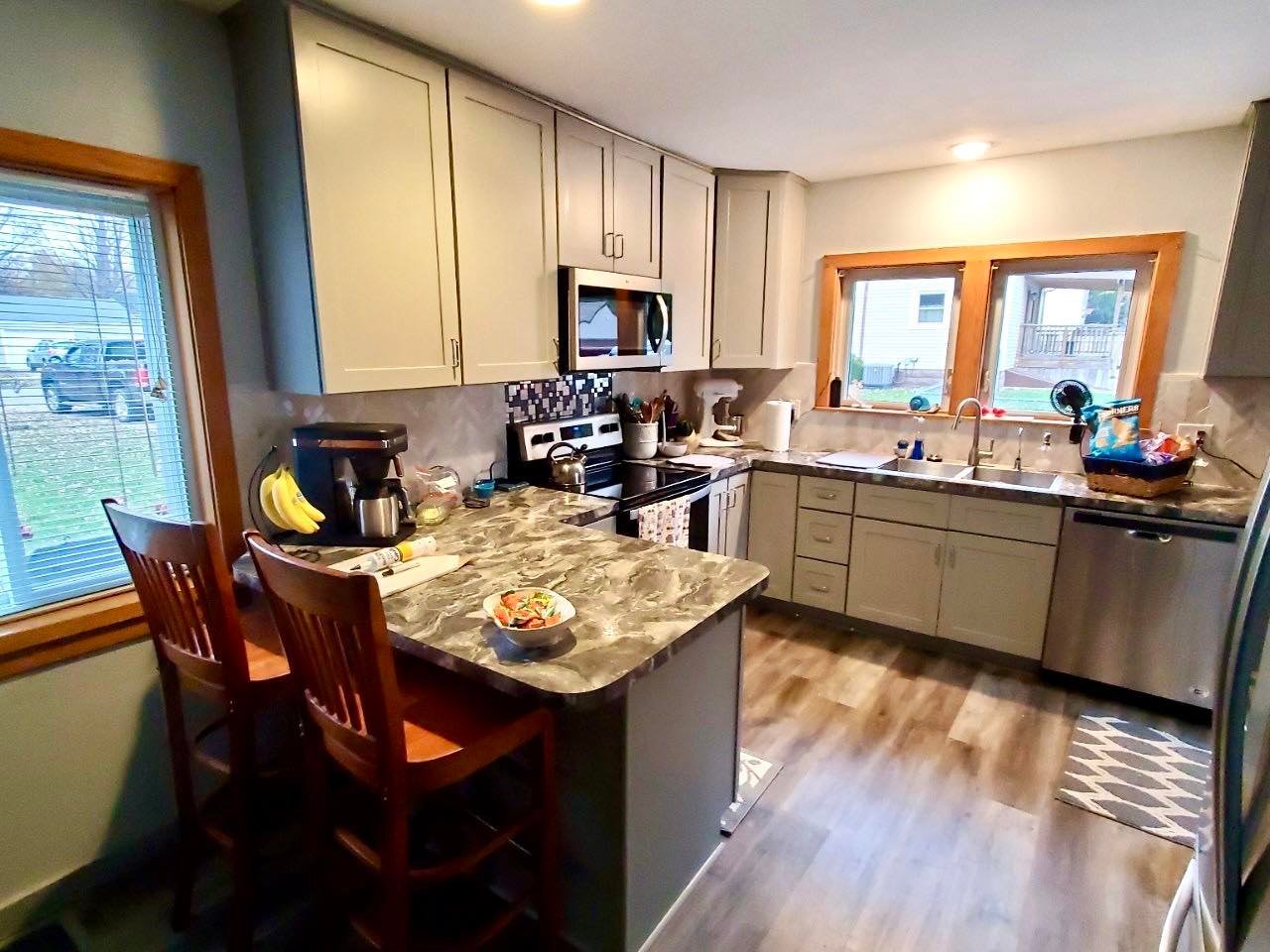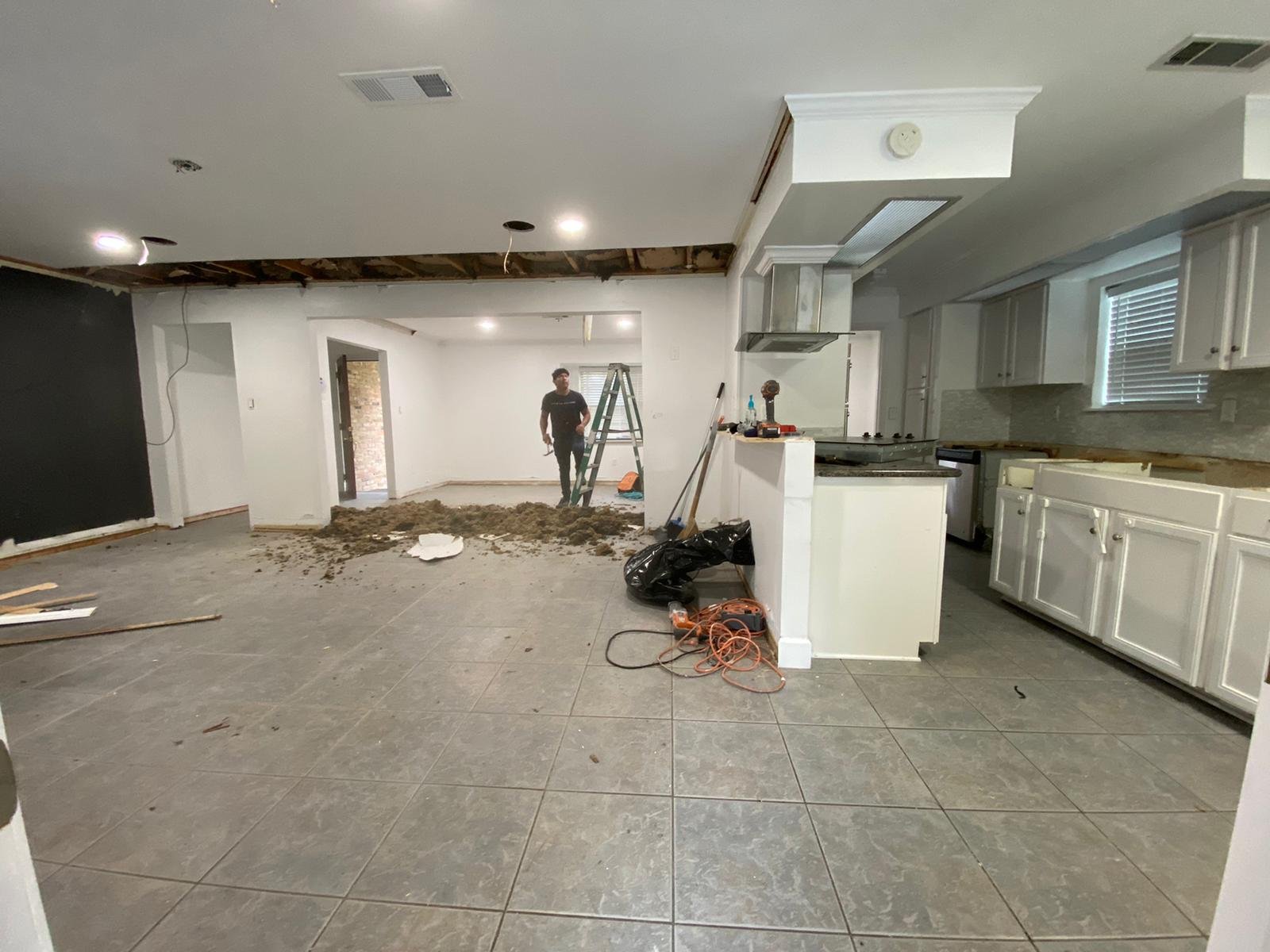Tips for Water Damage Restoration
Tips for Water Damage Restoration
Blog Article
What are your opinions about Most Common Causes of Residential Water Damage ?

The kitchen is the area where a great deal of water task takes place. You can barely do anything without utilizing water in the kitchen, from cooking, cleaning, and also doing the recipes.
Therefore, inspecting your kitchen every so often is a requirement. This is because it has a greater opportunity of obtaining water damage due to the appliances you make use of there.
When defective, these home appliances that manage water could make your cooking area untidy and influence the framework of your building in the long run.
So, allow's have a look at some sources of the water damage in the kitchen and also what you must watch out for.
Some Sources Of Water Damages in the Kitchen
These are a couple of reasons for water damage in the kitchen.
Faulty Drainpipe Pipes
Drain pipes Pipes are essential parts of our homes, especially in our bathroom and kitchens. They obtain defective by obtaining blocked, fractured, and ruptured. Or worse, they can be mistakenly or loosely attached; whichever the case might be, it can be a severe trouble.
Defective drainpipe pipes can trigger water damage and also, because of this, cause mold development and injure the look of your wall. It can additionally make the affected location look messy.
It is a good idea constantly to check to ensure that all the pipelines are in excellent condition as well as obtain an audio plumbing system to preserve and also fix any type of problems.
Faulty Kitchen Sink
The cooking area sink is a vital as well as the majority of used part of the kitchen area. For this reason it is prone to water damage; problems such as blocked pipes, leaking pipelines, and defective faucets.
These problems can be bothersome, particularly when one is active in the cooking area. Nonetheless, it doesn't just happen without providing an indication or an idea. Here are some signs to know when your sink is not alright
So, these are the major damages that can take place to your kitchen area sink. Nevertheless, one way to stop this damages is by making sure that food bits do not get into the pipelines. You are likewise checking the pipelines as well as taps as well as guaranteeing that it is properly taken care of and in good condition.
Leaking Dishwasher
Dishwashers make life in the cooking area much easier. It is an optional cooking area home appliance as well as, when available, can be a source of water damage. On top of that, like various other makers, it will certainly establish faults with time, despite maintenance.
Among the faults is dripping through the door or under the dishwasher. These mistakes develop as a result of age, cracks, incorrect use, loose web links to pipes, etc.
Mistakes because of age originated from constant use. As a result, the door leaks as a result of closing as well as opening up.
Also, faults from the wrong usage may create water damage by introducing cracks to it. For this reason, it is advisable to comply with the hand-operated guide of the dishwashing machine to stop this particular damage.
The leaks under the dishwashing machine can come from splits in the gasket, hose pipe, as well as wrong or loose link to water pipes or drains.
This type of leakage often goes unnoticed and also can be there for a long time. Due to the time frame, it can harm the flooring and trigger mold development.
A lot more so, the longer the water remains, you will discover the warping of the flooring where the dishwashing machine is. When examining if your dish washer leakages, this is an excellent indicator to look out for. Detecting and fixing this on schedule avoids severe water damage to your floor covering.
Bottom Line
Keeping an eye out for problems in your kitchen can be tasking but necessary. It makes your work there easier and safer.
The causes listed above are just a couple of variables to take into consideration, particularly if your kitchen area has a great deal of home appliances.
So get a professional pipes solution to find around and check for any kind of damages as well as get them repaired.
It makes your kitchen area untidy and damp, specifically when leaking from the pipelines. As well as if it is dripping from the tap, it leads to water waste.
It is an optional kitchen area appliance and also, when offered, can be a source of water damage. More so, the longer the water remains, you will notice the bending of the floor where the dishwasher is. Detecting as well as fixing this on time protects against severe water damage to your flooring.
WAYS TO PROTECT YOUR KITCHEN FROM WATER DAMAGE
The kitchen is one of the most significant rooms in your house, as it is a multipurpose room wherein you can do your cooking and cleaning. Nowadays, homeowners tend to ignore the problems under their sink or appliances because of their busy schedules. However, most household floods occur due to plumbing and appliance failure. One of the most common scenarios that cause water damage to your kitchen is when the dishwasher malfunctions and floods gallons of water.
Water damage in your kitchen can cause several problems, including cosmetic damage, mold growth, and even an unpleasant smell. Often, if you fail to neglect the problem, there are always consequences. This article will help you protect your kitchen from water damage.
Common Causes of Water damage in your kitchen
Pipe problems are the most common source of water leaks under your sink. If homeowners ignore this issue, it will burst and flood the kitchen. Dishwasher leaks can be a source of water damage in your kitchen. An old, broken, and defective dishwasher can cause leaks, damage to your floor, and even mold growth. Refrigerator leaks can cause water damage in your kitchen, as sometimes melted ice from defrosting can cause leaks. Furthermore, if your refrigerator has internal problems, it is very likely to cause water damage. Back-splash and sink caulking can cause discoloration and water damage to your countertop tiles. Ways to Protect Your Kitchen From Water Damage
Regular maintenance
The most important thing you can do to protect your kitchen from water damage is to inspect the sinks, drains, and pipes, as well as the kitchen appliances, regularly. As with the sink, check for missing or deteriorated caulk. Remove the old caulk and clean the area thoroughly and re-seal it with fresh silicone. Furthermore, sweep the drain regularly, empty the filter and dispose of the debris in the garbage, and inspect the supply lines and valve for cracks.
Check your appliances
Check the user’s manual for instruction and proper use of every water-related appliance installed in your kitchen. For the dishwasher, check this procedure to prevent the dishwasher from flooding your kitchen. Check the appliances that need water, such as the coffee maker, ice maker, and water cooler, as they can become the cause of water damage in your kitchen. You may call a professional to check and repair damaged appliances and professional restoration for water damage clean-up.
Garbage clean-up
Fats, oil, and grease are common in the kitchen. Pouring them down the drain can cause clogs and sewage backup, which may result in significant kitchen water damage. If your kitchen sink is clogged, use a solution of hot water, baking soda, and vinegar to unclog the fats and oils in the pipes. Also, make sure to throw out the debris in the trash and clean the sink properly using paper towels for greases and oil and soap or bleach solution for the sink itself.
Shut off your water line
Make sure to shut off your main water line, especially if you're away and having some flood issue. As mentioned, dishwasher leaks are one of the most common culprits of water damage in the kitchen. So, make sure to only use the dishwasher if someone is at home and available to attend in case a problem arises.
Furthermore, it is also important that every member of your household knows where the shut-off valves are located. So in case of an emergency, they can mitigate the damage by turning off the water source.
Install leak detectors
One of the best ways to catch water damage before it could even cause serious damage to your home or business is by installing a water or leak detector. A leak detector monitors the flow of water through a pipeline, can detect moisture in the air for molds, and tracks the water temperature. Also, it can shut off your water line in case of an emergency. Install leak detectors under the kitchen sink, near the dishwasher and refrigerator.
https://superiorrestore.com/7-ways-to-protect-your-kitchen-from-water-damage/

We had been shown that article about Most Common Causes of Residential Water Damage through someone on a different web blog. Sharing is caring. You never know, you may just be doing someone a favor. Thank-you for taking the time to read it.
Estimate Free Report this page